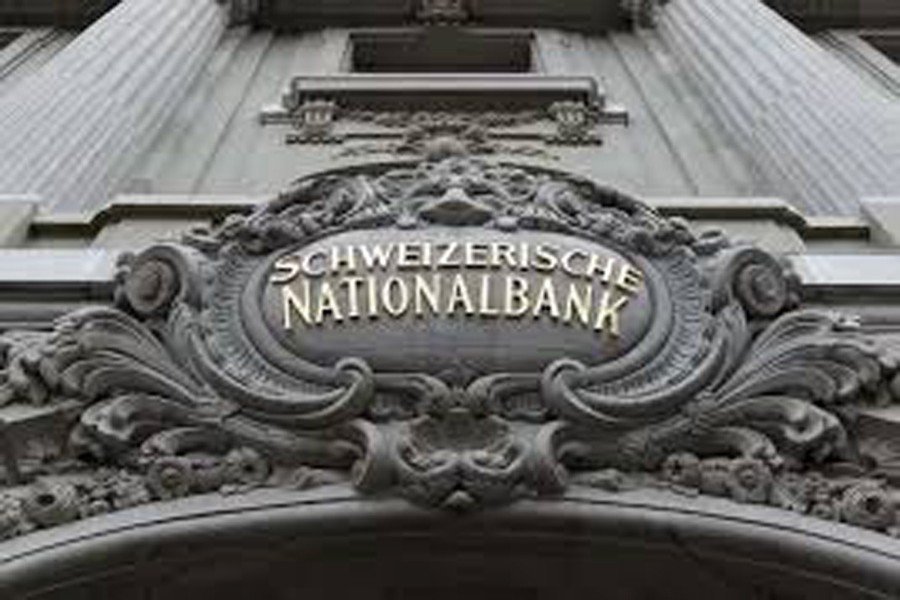
Published :
Updated :

BERN, June 21 (Reuters): The Swiss National Bank maintained its expansionary monetary policy on Thursday, citing a "fragile" exchange rate situation.
The exchange rate situation made it essential for the Swiss central bank to keep interest rates negative and be ready to intervene in currency markets.
The SNB kept its target range for the three-month London Interbank Offered Rate (LIBOR) at -1.25 to -0.25 per cent, as unanimously forecast in a Reuters poll of economists.
The central bank also held the interest rate it charges on sight deposits at -0.75 per cent.
The SNB added that it remained ready to intervene in the foreign currency markets to block a rise in the Swiss franc.
Both measures have been employed by the SNB to stem investor appetite for the franc over the last three-and-a-half years.
The SNB maintained its description of the franc as "highly valued", adding that despite the currency's weakening during 2018 the situation on the currency markets was "fragile".
"The Swiss franc initially depreciated slightly against the US dollar and the euro," the SNB said.
"However, in light of political uncertainty in Italy, we have since seen countermovement, particularly against the euro," it said.
"The situation on the foreign exchange market thus remains fragile," it continued.
"The negative interest rate and our willingness to intervene in the foreign exchange market as necessary therefore remain essential," added the central bank.
The SNB is expected to be among the last central banks to normalise its negative rates.
The US Federal Reserve is already well into its rates rising cycle.
On the other hand, the European Central Bank (ECB) has said it will end its bond buying scheme by the end of this year.
However, the ECB also signaled that any hike in interest rates was still some way off.
ECB President Mario Draghi said this week the bank would take a patient and gradual approach to raising rates.
The market is expecting its first hike in its deposit rate in September 2019.
Most economists reckon the SNB cannot move before the ECB because higher Swiss rates would revive upwards pressure on the franc.
An upwards pressure on the franc would be a problem for the export-reliant Swiss economy.
Earlier this week the Swiss government warned that economic risks had increased in recent weeks.
It made the remark citing the trade dispute over United States steel tariffs and uncertainties triggered by Italy's new anti-establishment government.
This Italian situation in particular could generate "upward pressure" on the safe-haven franc, the Swiss government said on Tuesday.
The SNB kept its economic outlook for Switzerland, saying it still expected GDP growth of 2.0 per cent.
It expected inflation of 0.9 per cent this year, up from the 0.6 per cent projection in March due to a marked rise in the price of oil.
It expects inflation of 0.9 per cent in 2019 and 1.6 per cent in 2020, down from the previous forecast of 1.9 per cent.
The cut in forecast figure from the previous one is mainly due to the muted outlook in the euro area.


 For all latest news, follow The Financial Express Google News channel.
For all latest news, follow The Financial Express Google News channel.